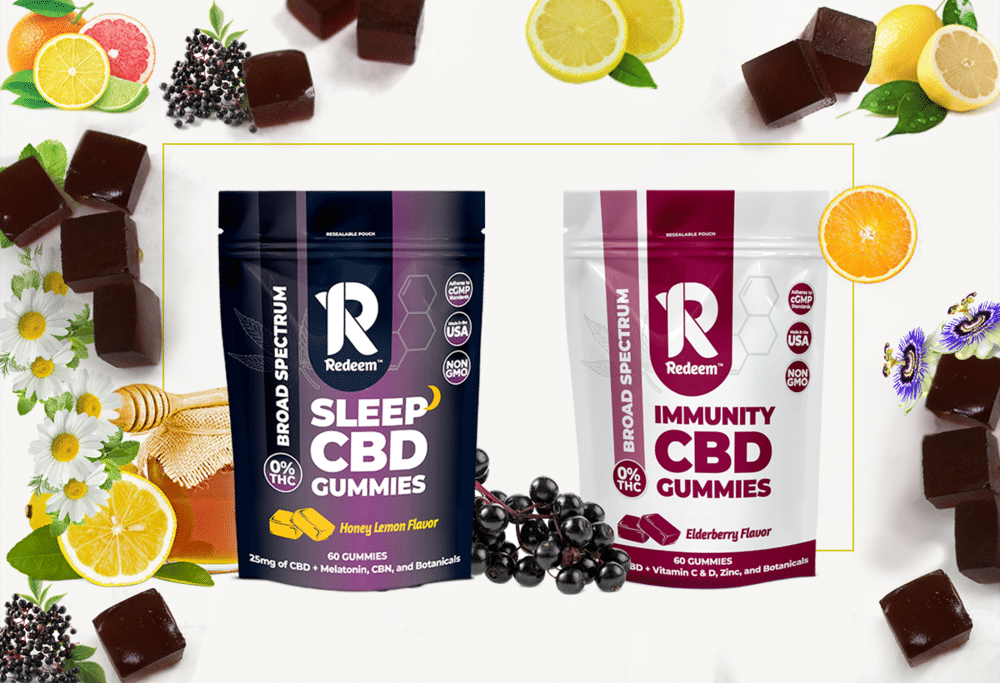Your Cart Details
By Angela Queen | Dec 28, 2023
Best CBD for Sleep: Our Top 5 Recommendations.
Best CBD for Sleep: Our Top 5 Recommendations.
By Angela Queen | Dec 28, 2023
We’re here to break down the best CBD for sleep! With the goal of both a good night’s sleep and waking up refreshed, many consumers who are seeking to avoid prescription medications are turning to the potential benefits of CBD (cannabidiol), one of over 100 cannabinoids found in the hemp plant. As the popularity of CBD continues to grow, so does its reputation for promoting relaxation and addressing sleep-related concerns.
Best Cbd for sleep
If you find yourself tossing and turning or struggling with insomnia, CBD may be a natural solution for you. In this guide, we’ll delve into the nuances of CBD for sleep, exploring the best CBD products tailored to enhance your sleep quality. Say goodbye to restless nights and discover the top CBD options that may be the key to unlocking more peaceful nights.
Redeem Therapeutics Best CBD for Sleep Products:
- CBD Gummies for Sleep: Most Convenient
- CBD Tincture for Sleep: Fast-Acting
- CBD Gummies without Melatonin: Delta-9 Benefits (Coming soon)
- Delta-8 Gummies: Mildly-Psychoactive
- CBN & CBD Sleep Soft Gels
Skip the Prescriptions! Use CBD for Sleep.
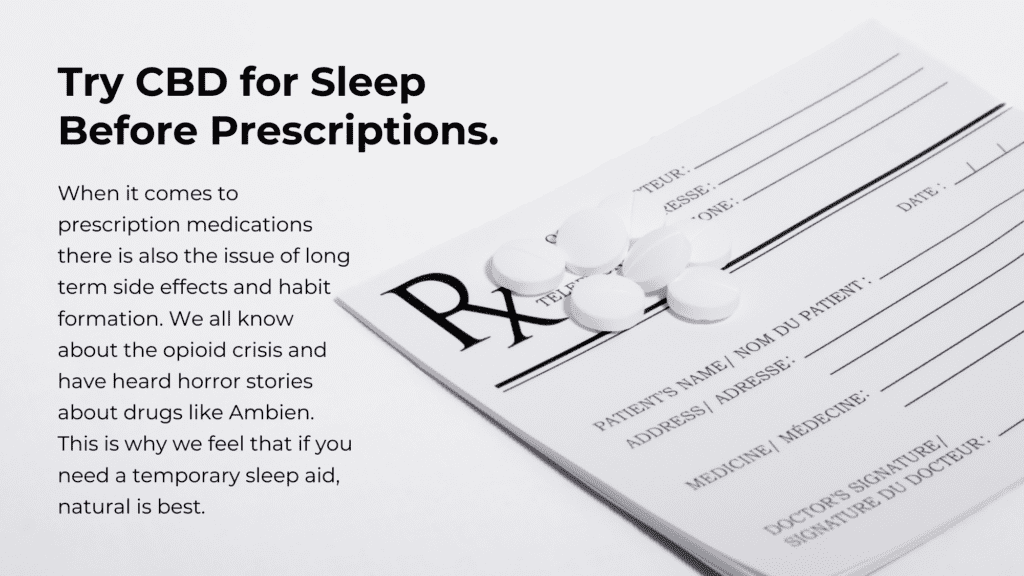
Prescription sleep medications can be a double-edged sword, offering relief for those grappling with insomnia while presenting potential risks that should not be overlooked. One significant concern is the risk of dependency and addiction associated with certain sleep aids.
Prolonged use of medications like benzodiazepines and non-benzodiazepine sedative-hypnotics may lead to a reliance that can be challenging to break. Moreover, these medications can induce side effects ranging from drowsiness and dizziness to memory impairment and, in some cases, sleepwalking.
It’s crucial to acknowledge the potential for tolerance, where, over time, the effectiveness of the medication may diminish, prompting individuals to increase their dosage, further exacerbating the risk of dependence. Before trying prescription sleep medication, it may be worth it to try a natural alternative like CBD sleep products, delta-8, or delta-9 products. Our products bring on deep sleep without the risky side effects of prescriptions.
How Does CBD for Sleep Work?
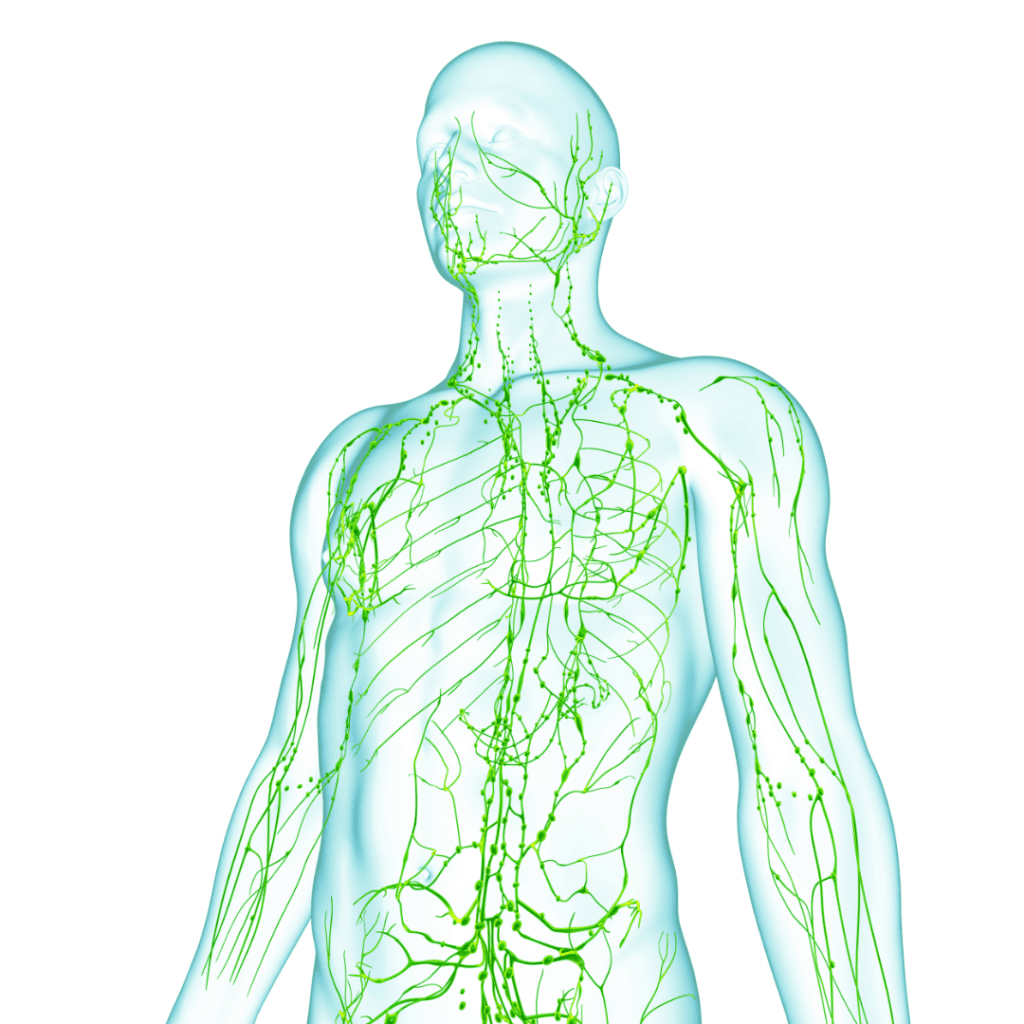
Like an internal balancing act, your body has a remarkable system called the endocannabinoid system (ECS). This system has three main parts: endocannabinoids, receptors, and enzymes. It helps keep things in check, like your mood, appetite, sleep, immune system, and pain levels.
- Endocannabinoids are like messengers produced by your body, and the main ones are anandamide and 2-arachidonoylglycerol (2-AG). These messengers bind to receptors called CB1, and CB2 spreads throughout your body. When endocannabinoids attach to these receptors, they start a chain reaction that helps regulate different functions in your body.
- Receptors: Cannabinoid receptors are found on the surface of cells throughout the body. The two main types of cannabinoid receptors are CB1 receptors, primarily found in the central nervous system (brain and spinal cord), and CB2 receptors, mainly found in the peripheral nervous system, immune cells, and other tissues. Endocannabinoids bind to these receptors to signal the ECS to take action.
- Enzymes like fatty acid amide hydrolase (FAAH) and monoacylglycerol lipase (MAGL) are crucial because they break down endocannabinoids after they have done their work. This ensures that your ECS stays finely tuned, preventing it from getting too active and helping to keep everything balanced.
Unlike THC, which is another compound in cannabis and causes a “high,” CBD doesn’t directly attach to the receptors. Instead, it influences them indirectly, making the endocannabinoids’ actions even better. This process shows how the ECS is like a control center for many things in your body, making it an exciting area for exploring new ways to improve health and wellness.
What Should I Know about CBD for Sleep?
CBD doesn’t directly bind to the cannabinoid receptors but influences them indirectly. It is believed to interact with receptors in regulating sleep-wake cycles, anxiety, and stress. Two key receptors are the CB1 receptor, found predominantly in the central nervous system, and the CB2 receptor, more prevalent in peripheral tissues and immune cells.
CBD’s potential sleep-promoting effects may be linked to its ability to modulate serotonin receptors. Serotonin is a neurotransmitter associated with mood and well-being, and its regulation is crucial for maintaining a healthy sleep pattern. By influencing serotonin receptors, CBD may help regulate mood and alleviate anxiety, contributing to a more relaxed state conducive to sleep.
CBD is also known for its anti-inflammatory and analgesic properties, which could indirectly contribute to better sleep by addressing discomfort or pain that might otherwise disrupt sleep. To learn more about how pain influences sleep, visit this blog post…
While research on CBD and sleep is still evolving, many users report positive experiences with CBD for sleep, emphasizing its potential to promote relaxation and manage conditions that can interfere with a good night’s rest. It’s important to note that individual responses to CBD can vary, and consulting with a healthcare professional before incorporating it into your sleep routine is advisable, especially if you are taking other medications.
The Benefits of High-Quality Sleep
High-quality sleep is the cornerstone of overall well-being, influencing physical and mental health. A restful night’s sleep enhances cognitive function, better concentration, and improved memory retention, fostering optimal daily performance. Beyond cognitive benefits, quality sleep plays a pivotal role in maintaining a robust immune system, helping the body defend against illnesses.
It is also a critical factor in regulating mood and emotional well-being, reducing the likelihood of stress, anxiety, and irritability. Adequate and rejuvenating sleep is linked to better cardiovascular health, as it regulates blood pressure and overall heart function. High-quality sleep supports physical recovery, aiding muscle repair and growth and promoting overall resilience. As a crucial pillar of a healthy lifestyle, prioritizing high-quality sleep establishes a foundation for sustained vitality and longevity. To learn more about sleep architecture, visit this blog…
The Risks of Sleep Deprivation
Sleep deprivation poses significant risks to both physical and mental well-being. Chronic sleep shortage has been linked to impaired cognitive function, including decreased attention span, memory issues, and reduced problem-solving abilities. Moreover, sleep-deprived individuals often experience mood disturbances, heightened irritability, and an increased susceptibility to stress and anxiety.
The immune system also suffers from insufficient sleep, making the body more vulnerable to infections and illnesses. Prolonged sleep deprivation has been associated with an elevated risk of chronic conditions such as cardiovascular disease, diabetes, and obesity.
Additionally, impaired sleep is linked to hormonal imbalances that can affect appetite and metabolism, potentially contributing to weight gain. Furthermore, the impact of sleep deprivation extends to increased accident proneness, as diminished alertness and slowed reaction times become more pronounced. Prioritizing sufficient, quality sleep is essential for maintaining overall health and mitigating the numerous risks of sleep deprivation.
The Research on CBD for Sleep
In recent years, scientific interest in the potential of CBD for promoting better sleep has sparked a wave of research endeavors. Delving into the complex relationship between CBD and sleep, studies have explored how this cannabinoid interacts with the body’s ECS to influence sleep-wake cycles, anxiety, and stress levels. As researchers continue to study CBD’s impact on sleep quality, a growing body of evidence suggests that CBD may offer a natural and effective solution for those seeking improved sleep patterns.
In this 2023 study, 1,793 adults with sleep issues tried six capsules for four weeks. Some had 15 mg of CBD, 5 mg of melatonin, and others had a mix of CBD with minor cannabinoids. The good news is that everyone using these capsules reported better sleep, and hardly anyone had side effects (only 12%). Most people (56% to 75%) felt a significant improvement in their sleep. Interestingly, the capsules with just 15 mg of CBD worked just as well as those with CBD plus other cannabinoids like cannabinol (CBN) or cannabichromene (CBC). Also, the capsules with 5 mg of melatonin were just as effective as those with CBD.
Can CBD Improve Sleep Quality?
Research suggests CBD may help your body transition from rapid eye movement (REM) to non-rapid eye movement (NREM) sleep more quickly. Sleep architecture is the foundation of high-quality sleep. Sleep architecture refers to the overall structure and organization of a night’s sleep, detailing the various stages and cycles the brain and body go through during sleep.
These sleep stages are generally categorized into two main types: non-rapid eye movement (NREM) sleep and rapid eye movement (REM) sleep. Each stage serves a specific purpose in maintaining the body’s overall health and functionality. The sleep cycle involves progressing through these stages multiple times during the night. A complete sleep cycle typically lasts about 90 to 110 minutes; an entire night’s sleep comprises several cycles.
Is CBD Good for Insomnia?
Research on the effectiveness of CBD for treating insomnia is still in its early stages, and while some studies suggest potential benefits, more research is needed to establish conclusive evidence. Insomnia is a complex condition influenced by various factors, and individual responses to treatments can vary. Here are a few ways CBD may be inadvertently helpful for insomnia:
- Anxiety and Stress Reduction: CBD has been studied for its anxiolytic (anxiety-reducing) properties, which could be beneficial for those whose insomnia is linked to anxiety or stress.
- Pain Relief: CBD has anti-inflammatory and analgesic properties, which may be helpful for individuals experiencing pain-related insomnia.
- Sleep-Wake Cycle Regulation: The endocannabinoid system influences the sleep-wake cycle, and CBD may modulate this cycle, potentially improving sleep patterns.
We do want to include it’s crucial to consult with a healthcare professional before using CBD for insomnia, especially if you are taking other medications. They can provide personalized advice based on your specific situation and health history.
If you are considering using CBD for insomnia, start with a low dose and monitor your response. Additionally, practicing good sleep hygiene, maintaining a consistent sleep schedule, and addressing any underlying factors contributing to insomnia are essential components of a comprehensive approach to sleep improvement.
CBN and CBD for Sleep
Like CBD, CBN is one of the many cannabinoids found in the cannabis plant. Also, like CBD, it is a non-psychoactive compound, meaning it doesn’t produce the “high” associated with its more well-known counterpart, tetrahydrocannabinol (THC). CBN is formed in cannabis flower when THC is exposed to oxygen and light, causing it to oxidize.
While CBN is less extensively studied than THC or CBD, it has gained attention for its potential therapeutic properties. Two properties specific to sleep include sedative and analgesic effects. Again, it is similar to CBD, but being it is a different cannabinoid, the interaction with the endocannabinoid system may vary or be complimentary. While further research may need to be done, we feel optimistic that the combination of these two cannabinoids causes a synergistic effect and increases the efficacy of our CBD sleep products.
How to Choose a CBD for Sleep
Choosing the right CBD product involves considering various factors to ensure it aligns with your preferences and needs. Here’s a guide on how to choose a CBD product:
- Determine Your Purpose: Understand why you want to use CBD. A clear purpose will guide your product selection, whether for relaxation, sleep, pain relief, or other reasons.
- CBD Spectrum: Choose between full-spectrum, broad-spectrum, or CBD isolate. The full-spectrum contains a range of cannabinoids, including THC (though in legal limits); the broad-spectrum has other cannabinoids but no THC, and the CBD isolate is pure CBD.
- Source and Quality: Look for products (like Redeem Therapeutics) sourced from high-quality, organic hemp. Check out our third-party lab testing to see how we verify potency, purity, and absence of contaminants.
- Delivery Method: CBD comes in various forms, including oils, capsules, gummies, topicals, and more. Choose a form that aligns with your preferences and lifestyle. For example, capsules or gummies might be suitable if you prefer a discreet option.
- THC Content: Check the THC content, especially if you want to avoid THC altogether or if there are legal restrictions in your area. Full-spectrum products may contain trace amounts of THC.
Remember that individual responses to CBD can vary, and finding the right product may involve trial and error. Start with a low dose, observe how your body reacts, and adjust as needed.
CBD Gummies or CBD Oil for Sleep?
Redeem Therapeutics stocks two sleep products: gummies and CBD oil. Both contain nervous system-supporting botanicals (chamomile, lemon balm, and passionflower), melatonin, and high-quality CBD. So how do you decide which one is right for you? Below, we break down the pros and cons of each.
Redeem Therapeutics Sleep CBD Gummies
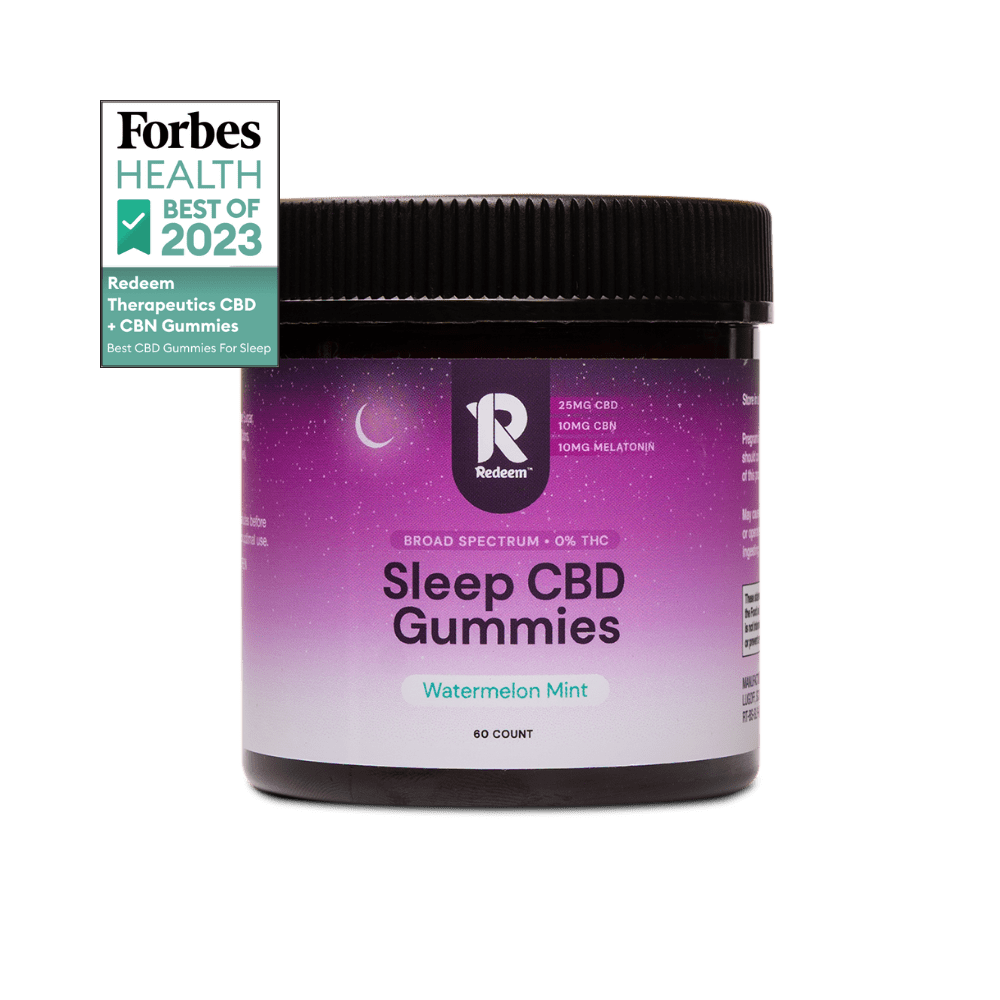
Pros:
- Broad Spectrum CBD Effects
- Contains Sleep-Promoting Cannabinoids
- Enhanced with Calming Botanicals
- Contains Melatonin
- Vegan & Gluten-Free
Cons:
- Contains Sugar
- May not be easy for the elderly to chew
Redeem Therapeutics CBD Sleep Oil
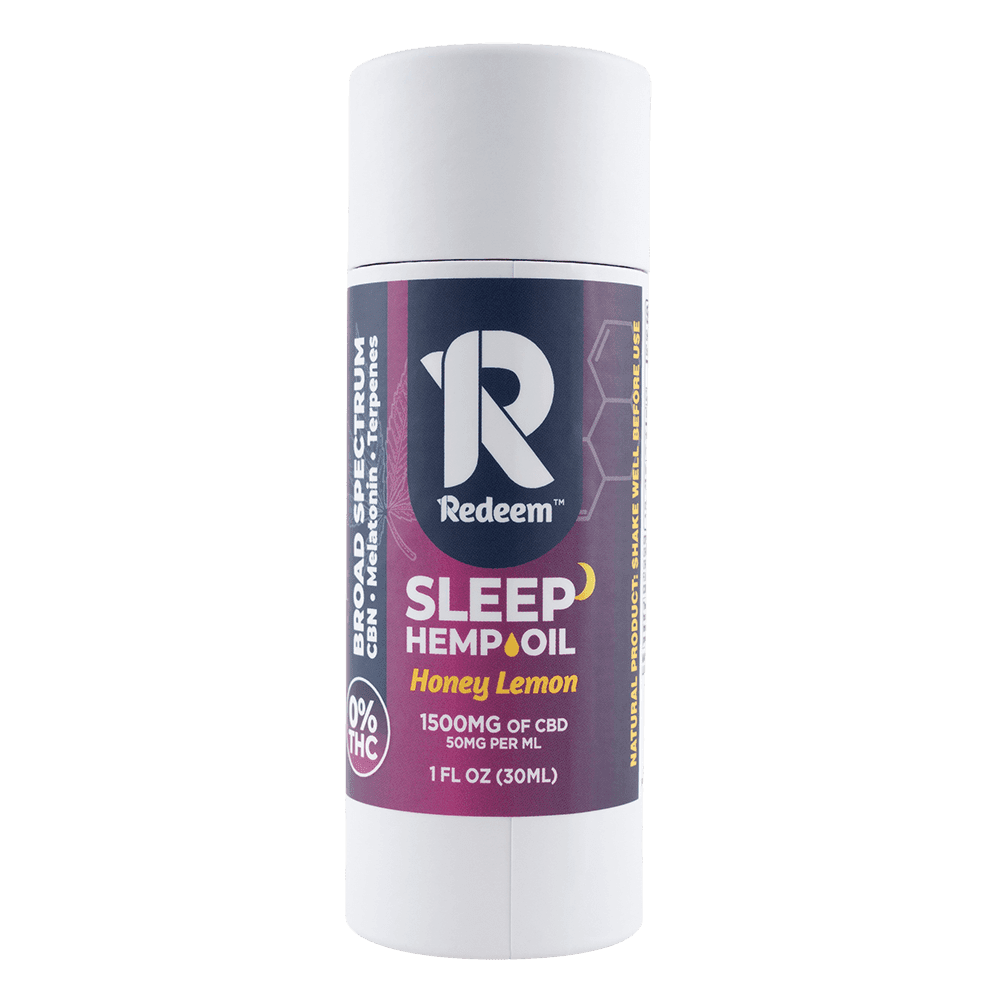
Pros:
- Broad Spectrum CBD Effects
- Contains Sleep-Promoting Cannabinoids
- Enhanced with Calming Botanicals
- Contains Melatonin
- Vegan, Sugar and Gluten-Free
Cons:
- Not as travel-friendly
- Stronger Hemp Flavor
- Oily texture.
Redeem Therapeutics CBN Sleep Capsules
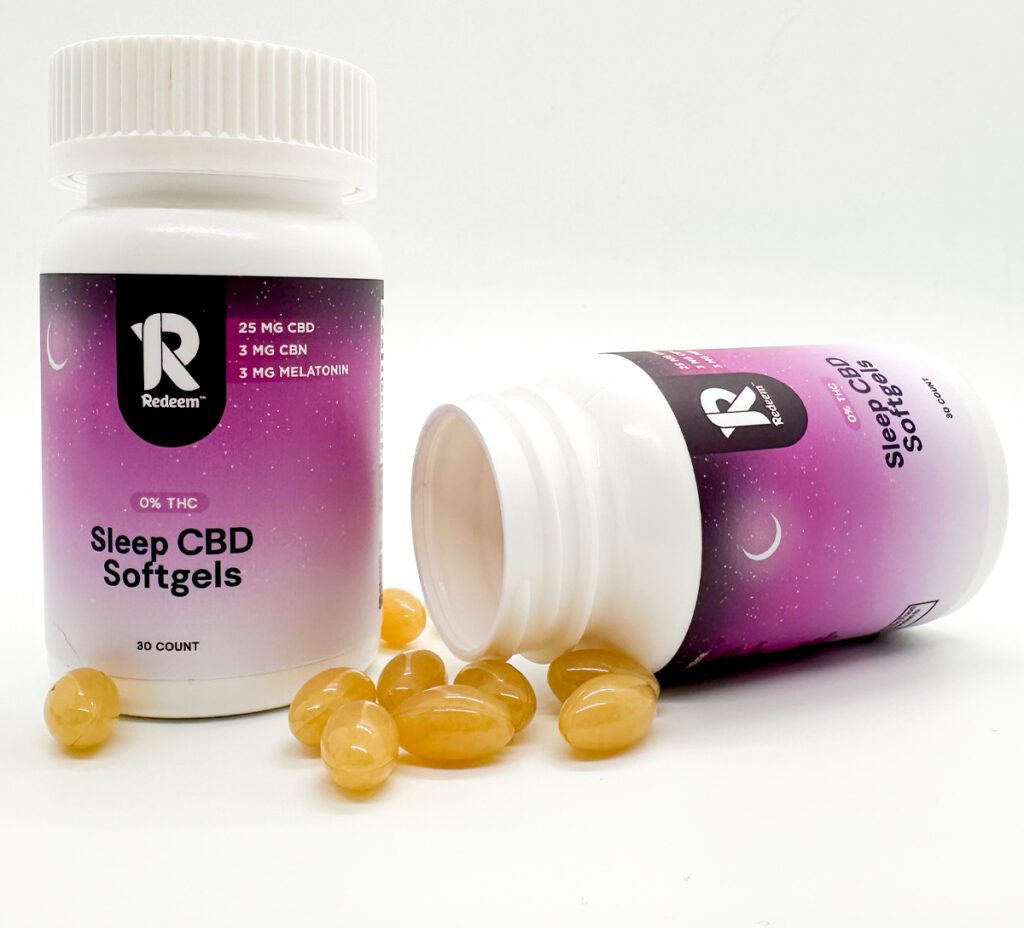
Pros:
- 0% THC
- Sugar-Free
- Discreet and Easy
- No Mess, No Fuss
- Benefits of CBD and CBN
Cons:
- Doesn’t contain the botanicals of our CBD Sleep Gummies.
Redeem Therapeutics Delta-8 Softgels for Sleep
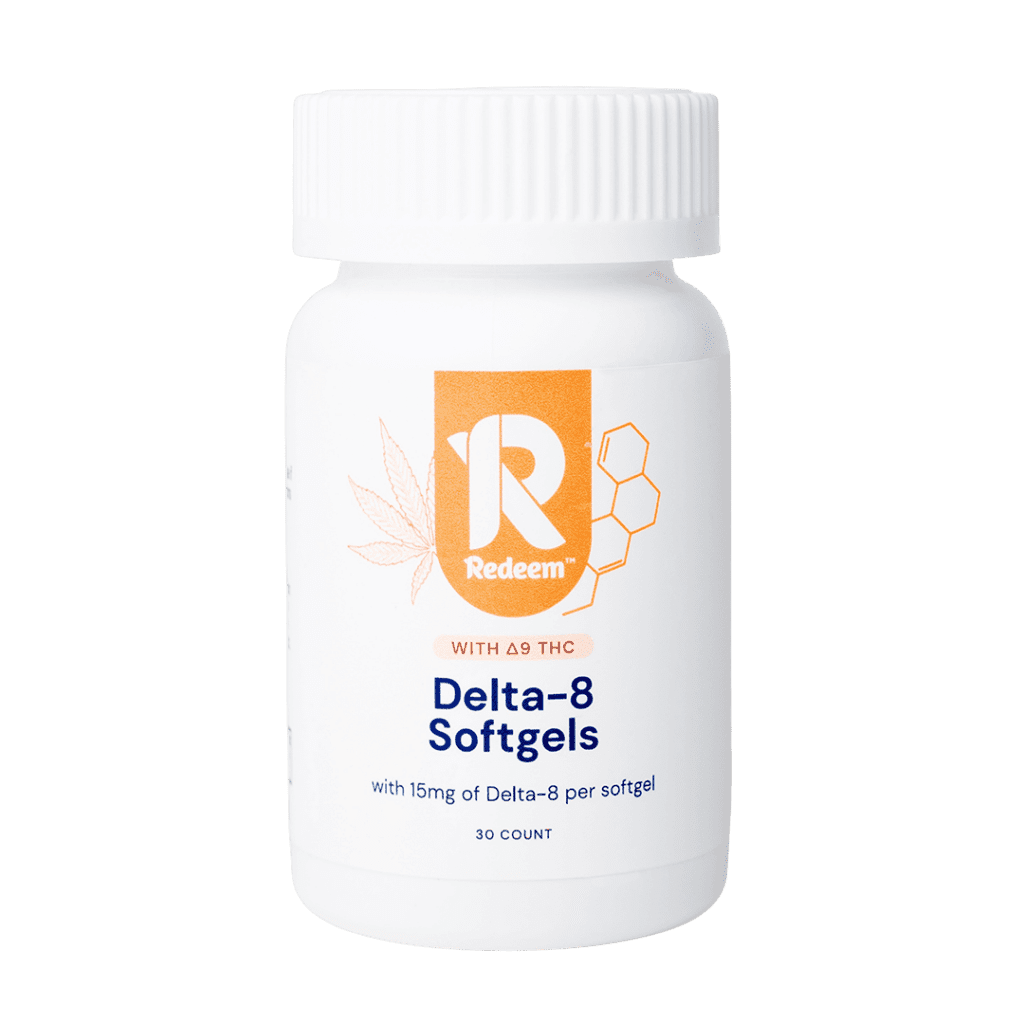
Pros:
- Benefits of delta-8 and delta-9
- Pain-reducing and sleep-inducing
- Mildly Psychoactive
- Discreet
- No Mess, No Fuss
- Sugar-Free
Cons:
- Mildly Psychoactive
CBD Gummies for Sleep without Melatonin (coming soon)
Best CBD for Sleep FAQ Section
How much CBD do I need to take for sleep?
It is always best to follow the instructions on your CBD product label. For Redeem Therapeutics, we recommend 1-2 sleep gummies, and our CBD sleep oil is measured at ½ a dropper-full or three sprays if you opt for our spray oil.
When is the best time to take CBD for sleep?
We recommend you take CBD for sleep products 30-45 minutes before bedtime. Ensure all your daily tasks are complete, and you can officially drift off into dreamland, as our CBD sleep products will make you groggy and ready to lie down.
How long does it take CBD to kick in for sleep?
This depends on the consumer’s unique metabolic system; however, a good rule of thumb is 30-45 minutes.
Is CBD better than melatonin for sleep?
Lucky for you, Redeem Therapeutics combines these two in our CBD sleep products for optimum results. With that in mind, it is essential to note that older adults are the population that tends to be lacking in melatonin production.
Is it safe to take CBD with Ambien for insomnia?
We advise you to consult with your doctor if you are on any medications before starting a CBD regimen.
Conclusion
And there you have it – a complete game plan filled with knowledge and CBD-infused gummies designed to transform even the most sleep-deprived among us into well-rested warriors ready to conquer each new day. By proactively addressing both the personal and professional impacts of quality sleep struggles, implementing key habitual changes, environmental controls and leveraging innovative natural supplements, we now hold the keys to unlocking deeply restorative and rejuvenating nightly rest. Just imagine what worlds of positive possibilities await when armed with boundless energy, sharpened cognition and elevated performance levels made possible through a science-backed commitment to sleep health.
Both individual wellbeing and achievement grow exponentially when caring for such a foundational human need. So why wait when the steps towards better living through better sleep rest squarely in your hands? A journey of a thousand miles begins with a single step – now boldly take that next step towards renewing mind, body and spirit as you dream the impossible dream each night. Sleep tight…and awaken to your brightest morning yet!
